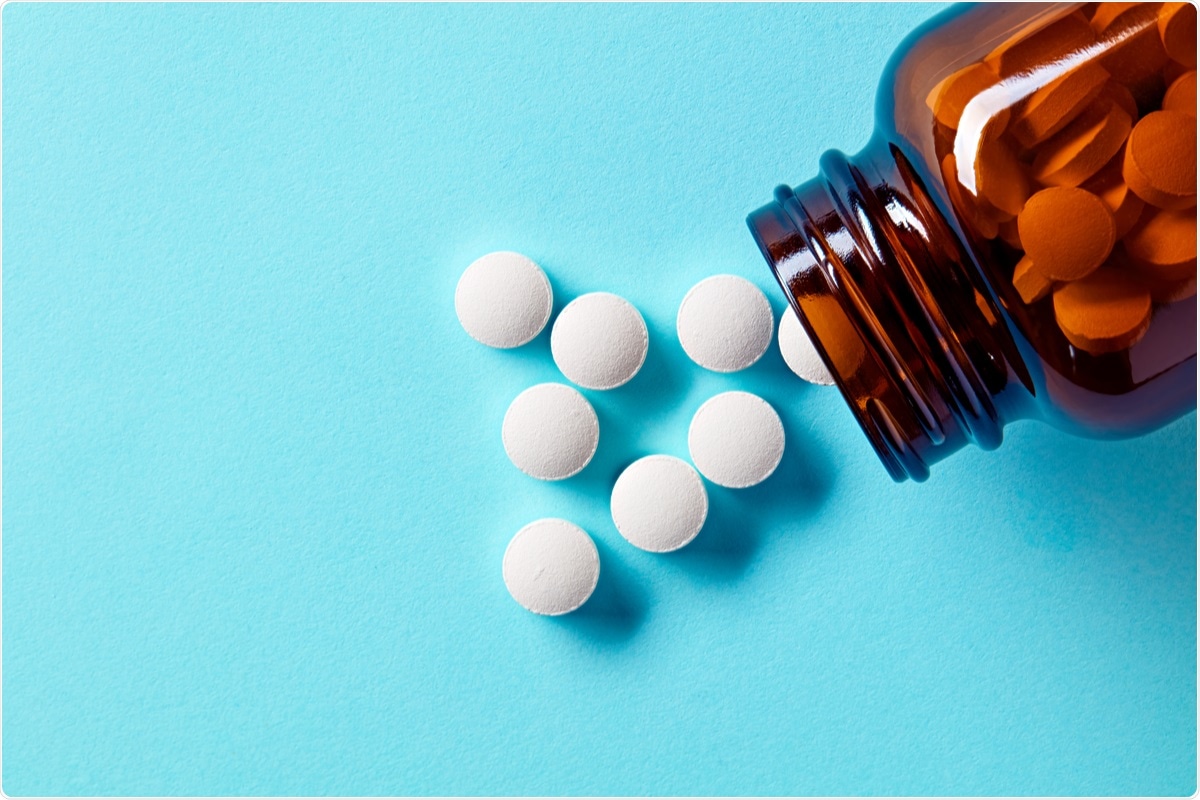Even though several vaccines have now been rolled out in a bid to end the pandemic of coronavirus disease 2019 (COVID-19) that has ravaged the world over the past 1.5 years, the delay in vaccine production and distribution is bound to leave many countries stranded without adequate supplies of vaccines for at least a year more. During this time, millions of cases may be added, many of which will require treatment.
New research by a team of scientists in the USA describes the potential utility of a drug called probenecid, commonly used to treat gout, to treat this devastating viral illness caused by the severe acute respiratory syndrome coronavirus 2 (SARS-CoV-2) – the causative virus of COVID-19.

A preprint version of the study is available on the bioRxiv* server, while the article undergoes peer review.
Background
There are few effective drug avenues against this virus as of now, with supportive care forming the backbone of medical management for severe COVID-19. This does not include the use of remdesivir, a nucleoside analog that received emergency use authorization (EUA) from the US Food and Drug Administration (FDA), because it was thought to accelerate recovery in hospitalized patients with severe COVID-19.
It does not reduce mortality, however, and its use is restricted to a small segment of COVID-19 patients. Thus, small molecules continue to be the main thrust area in antiviral therapies, as well as vaccines. However, the high probability that drug resistance will emerge rapidly in case monotherapy is used, other targets in the host cell genes and metabolic pathways must be identified to widen the range of antiviral activity.
Novel target identification
The identification of such targets has been made a little easier by the use of high-throughput screening (HTS) methods, including the use of RNA interference (RNAi) techniques. These have been employed to find novel approaches to this problem, especially via drug repurposing.
Repurposing is an efficient way to find a drug with activity against SARS-CoV-2, compared to drug development. This is because it avoids the large amount of time required, the costs involved and the risk that the drug candidate will not succeed in making it into clinical use.
OAT3 and probenecid
The HTS approach identified the organic anion transporter 3 (OAT3) gene as a possible candidate for a repurposed drug. This gene is expressed in the kidney, lung, choroid plexus, blood vessels, and other organs. It is involved in transporting endogenous anions such as urate, or other substrate molecules, and some exogenous molecules.
Probenecid is a drug that inhibits OAT3, its molecular structure being 4-[(dipropyl-amino) sulfonyl] benzoic acid. It has a high safety margin, is readily absorbed and distributed in the body, and has wide availability.
In vitro studies have shown that it blocks the replication of the influenza virus when used either pre- or post-exposure. The concentration at which it blocks 50% of replication (half-maximal inhibitory concentration, IC50) of the H1N1 influenza virus in human airway epithelial cells lies between 5 x 10-4 and 8 x 10-5 uM, depending on the strain.
With SARS-CoV-2, both the earlier strain and the B.1.1.7 variant, the researchers tested the effects of probenecid on viral replication within human bronchial epithelium cells and Vero E6 cells.
Probenecid inhibits SARS-CoV-2 replication
The findings show that treatment with this drug before viral exposure prevented plaque formation by SARS-CoV-2 in both types of cells, over a range of concentrations from 0.00001 - 100 uM. Plaques are formed by replicating virus, and this result, therefore, indicates that the drug effectively blocked replication.
Replication of the virus dropped by 90% and 60%, respectively, in the human bronchial epithelial cells and Vero E6 cells, respectively.
Not only so, the drug effectively inhibited the UK variant as well, which gives increased promise of its efficacy.
A hamster study followed, where the animals were inoculated with the virus at 24 hours post-probenecid prophylaxis or 48 hours before the drug was given. The doses used in all pre- and post-exposure treatment and control groups were 2 mg/kg and 200 mg/kg.
Amazingly, viral titers in the treated hamsters were reduced exponentially by 5 logs, while controls had about 109 log viral loads. Thus, probenecid caused a drastic decline in the viral load in the tissues, as measured by the tissue culture infectious dose-50 (TCID50) as well as a virus plaque assay.
The researchers also carried out modeling studies to examine the pharmacokinetic effects of three dosage regimens, namely, 600 mg twice daily, 900 mg twice daily, or 1800 mg once daily. The expected outcomes included a sustained concentration of the drug at up to 50-fold higher than the IC50 throughout the period of treatment, but below the highest allowable concentration (as per the FDA limit) of 2 g/day. No serious adverse effects were predicted.
What are the implications?
The findings show the potent blocking of SARS-CoV-2 replication in cell culture and in a preclinical animal model. Moreover, it was possible to achieve high plasma concentrations of the drug for 24 hours with one dose.
Together, these data strongly support the potential for probenecid to provide a robust antiviral response against SARS-CoV-2.”
*Important Notice
bioRxiv publishes preliminary scientific reports that are not peer-reviewed and, therefore, should not be regarded as conclusive, guide clinical practice/health-related behavior, or treated as established information.
https://news.google.com/__i/rss/rd/articles/CBMiiQFodHRwczovL3d3dy5uZXdzLW1lZGljYWwubmV0L25ld3MvMjAyMTA1MjUvUmVwdXJwb3NlZC1nb3V0LW1lZGljYXRpb24tKHByb2JlbmVjaWQpLXNob3dzLXBvdGVudC1pbmhpYml0aW9uLW9mLVNBUlMtQ29WLTItcmVwbGljYXRpb24uYXNweNIBjQFodHRwczovL3d3dy5uZXdzLW1lZGljYWwubmV0L2FtcC9uZXdzLzIwMjEwNTI1L1JlcHVycG9zZWQtZ291dC1tZWRpY2F0aW9uLShwcm9iZW5lY2lkKS1zaG93cy1wb3RlbnQtaW5oaWJpdGlvbi1vZi1TQVJTLUNvVi0yLXJlcGxpY2F0aW9uLmFzcHg?oc=5
2021-05-25 15:22:00Z
52781621489270
Bagikan Berita Ini














0 Response to "Repurposed gout medication (probenecid) shows potent inhibition of SARS-CoV-2 replication - News-Medical.Net"
Post a Comment